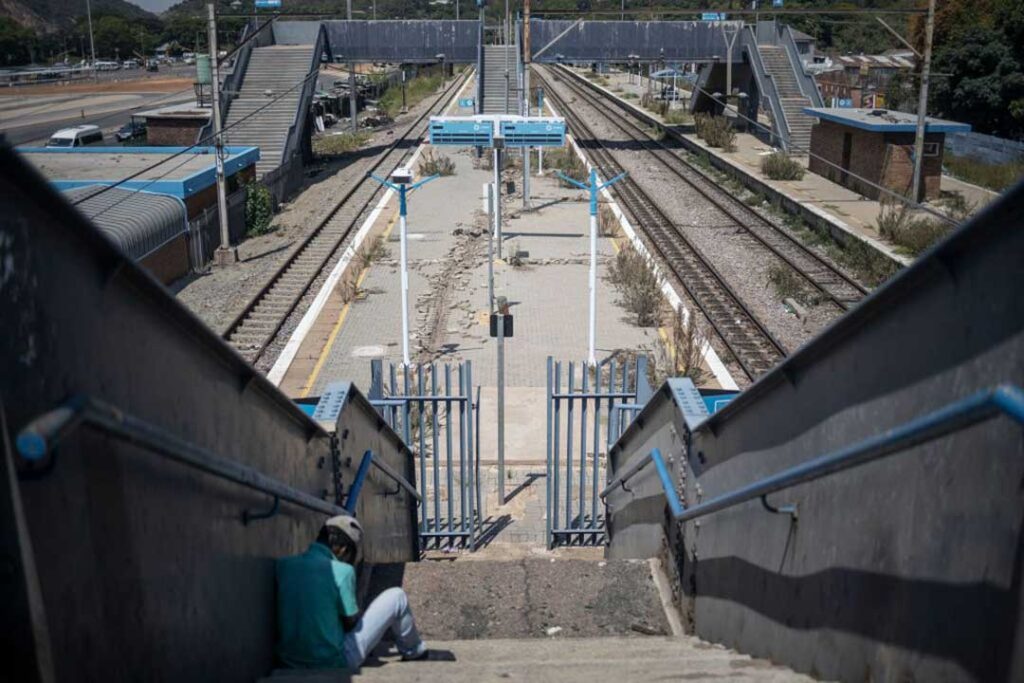ADF STAFF
In confronting future waves of COVID-19, policymakers are faced with a difficult question: How restrictive should lockdowns be?
After two years of the pandemic, with immunity levels slowly rising alongside fatigue, the answer may be “not very.” African leaders have moved away from strict lockdowns as they rebuild their economies and confront resistance from their citizens.
In South Africa, for example, President Cyril Ramaphosa lowered the country’s pandemic restrictions to Level 1 on October, loosening rules on gatherings and alcohol sales while still requiring masks as protection against spreading the virus.
South African epidemiologist Salim Abdool Karim has said countries must be wary of releasing all restrictions while the pandemic is still active and immunity levels remain low.
“Several countries are removing all restrictions,” Karim told the news site The South African. “This is reinforcing the perspective that COVID-19 is ending. I don’t know, and no one knows, when the pandemic will end.”
Some African countries won praise early in the pandemic for quickly closing their borders and locking down their societies to prevent the spread of COVID-19. Lockdowns were also imposed to avoid overwhelming the continent’s health care system, which at the time lacked enough intensive care beds, medical oxygen and even personal protective equipment to address widespread illness.
Those early lockdowns were not all the same. Kenya, Uganda and South Africa imposed some of the strictest lockdowns on the continent. Others, such as Benin, Zambia and Ghana, had looser lockdowns, largely out of fear tighter restrictions would cause food shortages.
“At the early stage, this measure seemed to heighten awareness of the virus and subsequently minimized exponential growth of cases,” researcher Aishat Jumoke Alaran wrote recently in Tropical Medicine and Health.
However, the lockdowns created extreme consequences for health systems, the economy and the population, Alaran noted. In Pretoria, South Africa, the lockdown resulted in vandals stealing electric cables, metal rails and other parts of the city’s metro rail system as they sat idle.
Extreme poverty increased by 65% under lockdown, pitching nearly 10% of Africans into extreme poverty, according to a study by Celine Zipfel at the London School of Economics and Political Science.
Those consequences led to widespread unhappiness, researcher Stephanie Rossouw told ADF. Rossouw examined the level of happiness in South African during lockdown by reviewing more than 65,000 posts on Twitter. She says she studies happiness because it influences behaviors and factors such as economic productivity.
“The South African economy cannot survive another countrywide lockdown,” Rossouw told ADF. “Localizing their response would be more appropriate to protect the vulnerable communities.”
Rossouw’s assessment is in line with Africa’s public health experts.
About a year into the pandemic, Dr. John Nkengasong, director of the Africa Centres for Disease Control and Prevention, came out against border closures, urging countries to increase testing as a way to stay ahead of virus outbreaks while allowing economic activity to resume.
The World Health Organization’s Africa regional office has promoted widespread, community-level testing, preventive treatments and lockdowns similar to those taken during the 2014-16 Ebola outbreak as methods to disrupt COVID-19 outbreaks when they flare up.
“What we’re left with now is an issue of wearing masks when you leave home,” South African Health Minister Joe Phaahla told eNCA news. South African health authorities still encourage hand-washing, social distancing and limiting the size of social gatherings to reduce the spread of COVID-19.
Even though the most recent omicron-driven wave has largely passed, South Africa still records about 2,000 infections every day, Phaahla said.
With another wave likely, an approach that drops all restrictions means erasing the success nations have had against the virus up to now, he added.
“We need to balance the fatigue among the people with the risk that if we simply wake up and drop everything, we can reverse all the gains of containment which we have attained up to now,” Phaahla said.

